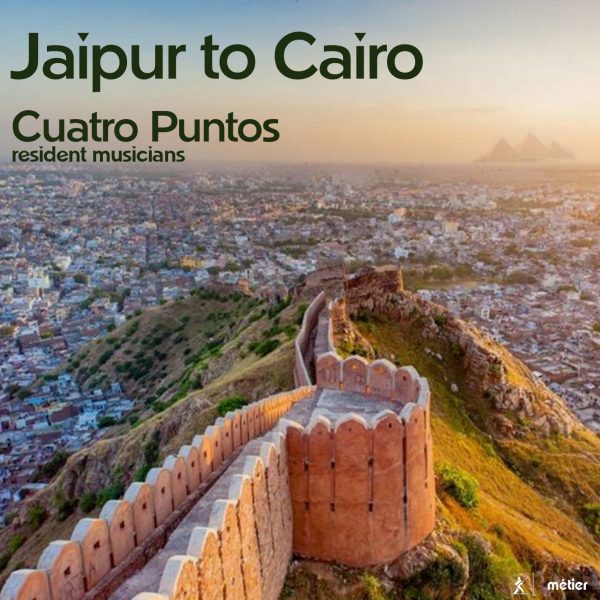Fanfare
Cuatro Puntos is an organization in Hartford, Connecticut dedicated to “intercultural dialogue and universal access through the performance, writing, and teaching of music.” The resident musicians of Cuatro Puntos are extraordinarily skilled and represent the best of a new kind of musician interested in multiculturalism in its most ideal form, a true blending of different musical vocabularies without weakening any of them. The cliché that music is a universal language that can bring people together is often wielded without thought by people trying to articulate a case for the value of art. Like most clichés it has truth at its core, and like most clichés it is often misused or badly applied. A symphony orchestra going into an African-American church to perform gospel music, usually in a manner that lacks authenticity, is an example of a bad application of the concept of multiculturalism. This disc, on the other hand, is a terrific example, for it does truly bring together Eastern and Western musical ideas and performers resulting in a credible and convincing artistic whole.
Kevin Bishop is a violist and the Executive Director of Cuatro Puntos, and also a composer of some skill. His Morning Song is based on Raag Jaunpuri, a Northern Indian raga, and his Afghan Suite No. 2 is a setting of three Afghan melodies. So often, when Western musicians try this kind of blend, the seams show in the music. That is not the case here—Bishop’s music has a convincing unity of purpose and direction that is captivating, even engrossing, as a listening experience. Reza Vali is perhaps the most widely known Iranian composer working in Western music circles today. His pieces here are all based on Persian folk music, and are hauntingly beautiful.
Sadie Harrison has written a piece for two violas based on what is reputed to be the oldest notated song in the world, dating from 1400 B.C., and combines that with a Syrian song from the ninth or 10th century A.D. The shifting meters and complex counterpoint are challenges for the performers, and the two violists from the ensemble (Bishop and Steve Larson) master the difficulties with no audible effort.
The longest work is the set of variations for oboe, piano, and strings by Gilad Cohen, an Israeli- American composer. It is also perhaps the most eclectic, combining influences from Western classical and popular music with Eastern influences. Again, one is struck by the fact that no part of this piece seems uncomfortable placed next to any other section, despite the wide range of stylistic influences. So often in music of this kind the result is a kind of pastiche, but thanks to brilliantly conceived transitions between variations Cohen conveys in his piece a genuine artistic unity.
The close of the disc is another example of the blending of influences. Mohamed Aly Farag is an Egyptian composer and violinist, deeply familiar with the folk music of his country but also a violinist in the Cairo Symphony Orchestra, which performs Western symphonic repertoire. On each hearing of this set of variations I heard something new, some new thematic relationship that I had missed the first time around.
As you can tell, I derived a good deal of pleasure from this disc, both because of the engaging repertoire and the considerable skill of the performers. There are informative notes in the accompanying booklet, and the recorded sound is natural and well balanced. For anyone interested in exploring territory beyond the traditional, this is recommended with enthusiasm.
@divineartrecordingsgroup
A First Inversion Company
Registered Office:
176-178 Pontefract Road, Cudworth, Barnsley S72 8BE
+44 1226 596703
Fort Worth, TX 76110
+1.682.233.4978












